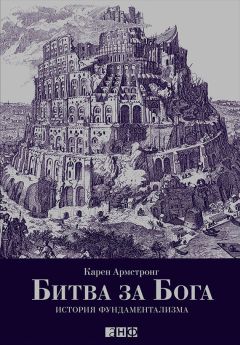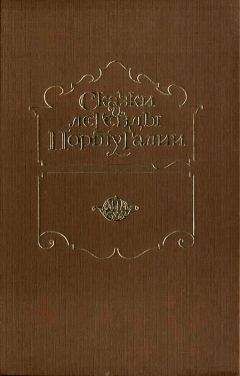Карен Армстронг - Битва за Бога: История фундаментализма

Помощь проекту
Битва за Бога: История фундаментализма читать книгу онлайн
200
Nathan O. Hatch, The Democratization of American Christianity (New Haven, Conn., and London, 1989), 22.
201
Ibid., 25–129.
202
Ibid., 68–157.
203
Ibid., 9.
204
Ibid., 36–37, 68–71.
205
Ibid., 115–120.
206
Ibid., 138–139.
207
Ibid., 71.
208
Ibid., 57.
209
Paul Boyer, When Time Shall Be No More: Prophecy Belief in Modern American Culture (Cambridge, Mass., and London, 1992), 83–84.
210
Ibid., 83.
211
Ibid., 82.
212
Daniel Walker Howe, «Religion and Politics in the Antebellum North,» in Noll (ed.), Religion and American Politics, 132–133; George M. Marsden, «Afterword,» in ibid., 382–383.
213
Robert P. Swierenga, «Ethno-Religious Political Behavior in the Mid-Nineteenth Century,» in Noll (ed.), Religion and American Politics, 158; Hatch, Democratization of American Christianity, 198–200.
214
Ruth H. Bloch, «Religion and Ideological Change in the American Revolution,» in Noll (ed.), Religion and American Politics, 55–56.
215
Boyer, When Time Shall Be No More, 82.
216
Robert C. Fuller, Naming the Antichrist: The History of an American Obsession (Oxford and New York, 1995), 95.
217
Swierenga, «Ethno-Religious Political Behavior in the Mid-Nineteenth Century,» 159–160; Marsden, «Afterword», 283–284.
218
Howe, «Religion and Politics in the Antebellum North,» 125–28; Swierenga, «Ethno-Religious Political Behavior,» 152–158.
219
Butler, Awash in a Sea of Faith, 270.
220
The Essence of Christianity (trans. George Eliot; New York, 1957), 33. В рус. переводе: Л. Фейербах. Сущность христианства // Избранные философские произведения: В 2 т. Т. 2. – М., 1965.
221
Karl Marx, «Economic and Philosophical Manuscripts,» in Karl Marx: Early Writings (trans, and ed. T. B. Borrowmore; London, 1963), 166–167. В рус. переводе: Маркс К. Экономическо-философские рукописи 1844 года и другие ранние философские работы. – М.: Академический проект, 2010.
222
James R. Moore, «Geologists and Interpreters of Genesis in the Nineteenth Century,» in Lindberg and Numbers (eds.), God and Nature, 341–343.
223
Essays and Reviews, 4th ed. (London, 1861).
224
Owen Chadwick, The Secularization of the European Mind in the Nineteenth Century (Cambridge, U. K., 1975), 161–188.
225
Quoted in Peter Gay, A Godless Jew: Freud, Atheism and the Making of Psychoanalysis (New Haven, Conn., and London, 1987), 6–7.
226
T. H. Huxley, Science and Christian Tradition (New York, 1896), 125.
227
Ницше Ф. Веселая наука // Ницше Ф. Соч.: В 2 т. Т. 1. – М.: Мысль, 1990.
228
Ibid.
229
Paul Johnson, A History of the Jews (London, 1987), 309. В рус. переводе: Джонсон П. История евреев.
230
Yirmanyahu Yovel, Dark Riddle: Hegel, Nietzsche and the Jews (Cambridge, U. K., 1998), 3–20, 83–97.
231
«On the Jewish Question,» in Karl Marx: Early Writings (trans. and ed. T. B. Borrowmore; London, 1963). В рус. переводе: Маркс К. К еврейскому вопросу // Маркс К., Энгельс Ф. Соч. 2-е изд. Т. 1. – М, 1955. – С. 382–413.
232
Benzion Dinur, «The Origin of Hasidism and Its Social and Messianic Foundations,» in Gershom David Hundert (ed.), Essential Papers on Hasidism: Origins to Present (New York and London, 1991), 86–161.
233
Simon Dubnow, «The Maggid of Miedzyryrzecz, His Associates and the Center in Volhynia,» in Hundert, Essential Papers, 58.
234
Gershom Scholem, «The Neutralization of Messianism in Early Hasidism,» in The Messianic Idea and Other Essays on Jewish Spirituality (New York, 1971), 189–200; «Devekut or Communion with God,» in ibid., 203–237; Louis Jacobs, «The Uplifting of the Sparks in Later Jewish Mysticism,» in Arthur Green (ed.), Jewish Spirituality, 2 vols. (New York and London, 1986, 1988), II, 116–125; Jacobs, «Hasidic Prayer,» in Hundert, Essential Papers, 330–348.
235
Benzion Dinur, «The Messianic-Prophetic Role of the Baal Shem Tov,» in Marc Saperstein (ed.), Essential Papers on Messianic Movements and Personalities in Jewish History (London and New York, 1992), 378–380.
236
Dubnow, «The Maggid of Miedzyryrzecz,» 65.
237
Ibid., 61.
238
Scholem, «The Neutralization of Messianism in Early Hasidism,» 196–198.
239
Louis Jacobs (ed.), The Jewish Mystics (London, 1990; New York, 1991), 208–215.
240
Название «Хабад» представляет собой акроним, составленный из трех божественных атрибутов каббалы: Hokhmah (мудрость), Binah (понимание) и Daat (знание).
241
Rachel Elior, «HaBaD: The Contemplative Ascent to God,» in Green (ed.), Jewish Spirituality, II, 158–203.
242
Jacobs, «Hasidic Prayer,» 350–355.
243
Jonathan Magonet, The Explorer's Guide to Judaism (London, 1998), 11.
244
David Rudavsky, Modern Jewish Religious Movements: A History of Emancipation and Adjustment, rev. ed. (New York, 1967), 85.
245
Norman Cantor, The Sacred Chain, A History of the Jews (New York, 1994; London, 1995), 236–37.
246
Ibid., 247–248.
247
Английские евреи были реабилитированы Оливером Кромвелем и после реставрации монархии по административному недосмотру получили юридическое признание вместе с другими «раскольниками».
248
Cantor, The Sacred Chain, 241–256.
249
Rudavsky, Modern Jewish Religious Movements, 157–164.
250
Ibid., 286–287.
251
Ibid., 290.
252
Julius Guttmann, Philosophies of Judaism, the History of Jewish Philosophy from Biblical Times to Franz Rosenzweig (London and New York, 1964), 308–351.
253
Rudavsky, Modern Jewish Religious Movements, 188, 194–195, 201–204.
254
Ibid., 218–219.
255
Samuel C. Heilman and Menachem Friedman, «Religious Fundamentalism and Religious Jews,» in Martin E. Marty and R. Scott Appleby (eds.), Fundamentalisms Observed (Chicago and London, 1991), 211–215; Charles Selengut, «By Torah Alone: Yeshiva Fundamentalism in Jewish Life,» in Martin E. Marty and R. Scott Appleby (eds.), Accounting for Fundamentalisms (Chicago and London, 1994), 239–241; Menachem Friedman, «Habad as Messianic Fundamentalism,» in ibid., 201.
256
Hayim Soloveitchic, «Migration, Acculturation and the New Role of Texts,» in Marty and Appleby (eds.), Accounting for Fundamentalisms, 333–334.
257
Rudavsky, Modern Jewish Religious Movements, 219–243.
258
Andrew A. Paton, A History of the Egyptian Revolution, 2 vols. (Trubner, Germany, 1876), I, 109–111.
259
George Annesley, The Rise of Modern Egypt: a Century and a Half of Egyptian History (Durham, U. K., 1994), 7.
260
Gaston Wait (ed. and trans.), Nicolas Turc, Chronique D'Egypte: 1798–1804 (Cairo, 1950), 78.
261
Youssef M. Choueiri, Islamic Fundamentalism (London, 1990), 19.
262
Araf Lufti al-Sayyid Marsot, «The Ulama of Cairo in the Eighteenth and Nineteenth Centuries,» in Nikki R. Keddie, Scholars, Saints and Sufis: Muslim Religion Institutions in the Middle East Since 1500 (Berkeley, Los Angeles, and London, 1972), 161–162; Daniel Crecelius, «Nonideological Responses of the Egyptian Ulama to Modernization,» in ibid., 173–175.
263
Bassam Tibi, Arab Nationalism, A Critical Enquiry, 2nd ed. (trans. Marion Farouk Sluglett and Peter Sluglett; London, 1990), 81.
264
Marsot, «The Ulama of Cairo,» 162.
265
Annesley, The Rise of Modern Egypt, 28–238.
266
Ibid., 51–56.
267
Ibid., 57–59.
268
Ibid., 59–60.
269
Ibid., 62.
270
Marsot, «The Role of the Ulama in Egypt During the Early Nineteenth Century,» in P. M. Holt (ed.) Political and Social Change in Modern Egypt: Historical Studies from the Ottoman Conquest to the United Arab Republic (London, 1968), 227–228.
271
Annesley, The Rise of Modern Egypt, 61.
272
Из обзора Али Мубарака (1875), в: Crecelius, «Nonideological Responses of the Egyptian Ulama,» 181–182.
273
Ibid., 180–189; Marsot, «The Role of the Ulama,» 278–279.
274
Albert Hourani, Arabic Thought in the Liberal Age, 1798–1939 (Oxford, 1962), 42–45.
275
Ibid., 46–49.
276
Annesley, The Rise of Modern Egypt, 129–141, 152.
277
Ibid., 147.
278
Ibid., 153–155.
279
Gerard de Nerval, Oeuvres (ed. Albert Beguin and Jean Richter; Paris, 1952), 895.
280
Michael Gilsenan, Recognizing Islam: Religion and Society in the Modern Middle East (London, 1990), 199.
281
Ibid., 198–201.
282
Nikki R. Keddie, Roots of Revolution: An Interpretive History of Modern Iran (New Haven, Conn., and London, 1981), 37–38.
283
Ibid., 25, 38–39, 42–43; Keddie, «The Roots of the Ulama's Power in Modern Iran,» in Keddie (ed.), Scholars, Saints and Sufis, 214–215.
284
Keddie, Roots of Revolution, 44–47, 56–63.
285
Juan R. Cole, «Imami Jurisprudence and the Role of the Ulama: Mortaza Ansari on Emulating the Supreme Exemplar,» in Keddie (ed.), Religion and Politics in Iran: Shiism from Quietism to Revolution (New Haven, Conn., and London, 1983), 41.
286
J. M. Tancoigne, A Narrative of a Journey into Persia and Residence in Teheran (trans. William Wright; London, 1820), 196–201.
287
William Beeman, «Cultural Dimensions of Performance Conventions in Iranian Taziyeh,» in Peter J. Chelkowski (ed.), Taziyeh, Ritual and Drama in Iran (New York, 1979), 26.
288
Michael J. Fischer, Iran: From Religious Dispute to Revolution (Cambridge, Mass., and London, 1980), 20, 176.
289
Marshall G. S. Hodgson, The Venture of Islam: Conscience and History in a World Civilization 3 vols. (Chicago and London, 1974), III, 155. Mangol Bayat, Mysticism and Dissent: Socioreligious Thought in Qajar Iran (Syracuse, N. Y., 1982), 37–58.
290
Bayat, Mysticism and Dissent, 60–86.
291
Ibid., 87–91.
292
Ibid., 90–97, 101–109.
293
Ibid., 97–100.
294
Ibid., 110–116.
295

























